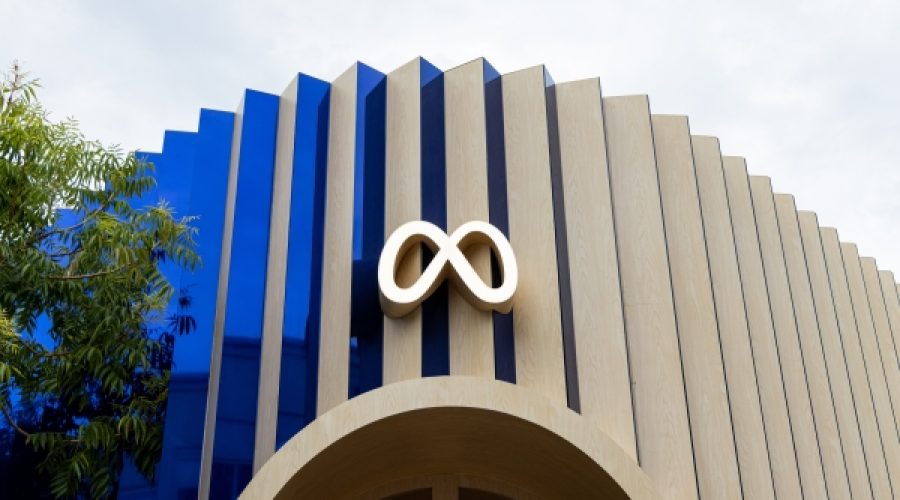Meta Cleared in Instagram and WhatsApp Acquisitions: What This Means for Business and Investment Transparency
WASHINGTON — A federal judge ruled on Tuesday that Meta did not violate the law when it acquired its early competitors Instagram and WhatsApp, delivering a significant victory to the $1.51 trillion company and a setback to government efforts aimed at curbing the power of major tech firms.
Judge James E. Boasberg of the U.S. District Court for the District of Columbia issued an 89-page decision stating that Meta did not establish a monopoly in social networking through these acquisitions. He noted that the market has since continued to grow, with competitors such as TikTok and YouTube actively challenging Meta’s position. The Federal Trade Commission (FTC) had sued Meta, alleging the company used a “buy or bury” strategy to maintain dominance by purchasing Instagram and WhatsApp, thereby violating antitrust laws.
“The FTC continues to maintain that Meta competes only with the same rivals as in the past decade, holds a monopoly among that narrow set, and maintained it through anticompetitive acquisitions,” Boasberg wrote. “The court’s verdict today finds that the FTC has not substantiated this claim.”
Meta, which shaped the social media landscape since Mark Zuckerberg founded Facebook in 2004, had faced the FTC’s demand for a court order to divest Instagram and WhatsApp before the ruling. The decision now allows Meta to continue pursuing its broader business goals, including its expansion into artificial intelligence.
For federal regulators, this ruling represents a considerable challenge in their ongoing efforts to regulate the influence of tech giants, a campaign that has spanned the Trump and Biden administrations alike. While the government has secured major victories against other tech companies—such as two Department of Justice cases against Google for monopolistic practices—the outcome against Meta is a notable reversal.
Other pending antitrust actions include a 2027 trial date for a case against Amazon, accused of disadvantaging small merchants on its platform, and litigation against Apple, accused of restricting user options within its device ecosystem.
Jennifer Newstead, Meta’s chief legal officer, welcomed the ruling, stating, “The court’s decision today recognizes that Meta faces fierce competition. Our products benefit people and businesses and embody American innovation and economic growth.”
In contrast, the FTC expressed disappointment and criticized the judge as biased. “We are deeply disappointed in this decision,” FTC spokesperson Joe Simonson said. “The deck was always stacked against us with Judge Boasberg.”
The case, Federal Trade Commission v. Meta Platforms, originated from the government’s argument that Meta, formerly Facebook, made strategic acquisitions of Instagram in 2012 for $1 billion and WhatsApp in 2014 for $19 billion to stifle competition. The lawsuit alleged violations of the Sherman Antitrust Act, a 135-year-old law prohibiting monopolization through anticompetitive means.
Legal experts noted the difficulty for the government to prove a hypothetical scenario—that Meta would be less dominant today had it not acquired these rivals.
Over a six-week trial this year, Boasberg heard from 38 witnesses, including Zuckerberg, who faced rigorous questioning from government attorneys. The FTC contended that Meta monopolized a narrowly defined “personal social-networking” market, citing Snapchat as its primary competitor.
Executives from LinkedIn, Reddit, Pinterest, YouTube, and others testified alongside conflicting views on social media market definitions and the potential independent success of Instagram and WhatsApp.
Central to the FTC’s case were more than 400 internal documents revealing Zuckerberg and Meta executives’ concerns over Instagram and WhatsApp competition. The agency argued these showed Meta’s intent to protect its market position, reducing consumer choices.
Meta countered by emphasizing the evolution of social media and the intensified competition it faces, especially from video-centric platforms TikTok and YouTube. The company also stated that its resources helped Instagram and WhatsApp grow.
Judge Boasberg agreed with Meta, highlighting the rapid technological changes since the FTC’s initial complaint. He noted how Facebook and Instagram have shifted to focus on short, algorithm-driven videos, intensifying their competition with apps like TikTok and YouTube.
The broad market definition adopted by the court may limit the FTC’s ability to appeal successfully, as higher courts often defer to the trial judge’s market assessment.
Rebecca Haw Allensworth, a law professor at Vanderbilt University, described the ruling as “a decisive win for Meta” that undermines the momentum of government antitrust cases against big technology firms.
The government’s lawsuit, first filed in late 2020 under the Trump administration, struggled to advance initially. Boasberg dismissed the FTC’s and related state antitrust suits for insufficient evidence and legal theory but allowed the FTC to refile under the Biden administration.
The case spotlights the challenge regulators face in proving intent to harm competition through acquisitions, especially in an industry marked by frequent mergers and rapid innovation.
Before the trial commenced in April, Zuckerberg reportedly visited the White House to discuss a possible settlement with then-President Trump.
This article originally appeared in The New York Times.
Special Analysis by Omanet | Navigate Oman’s Market
Meta’s court victory against antitrust claims underscores the resilience and expansion of dominant tech platforms amid evolving competition, notably from TikTok and YouTube. For businesses in Oman, this signals continued opportunities in digital marketing and AI-driven services as global social media ecosystems grow robustly. Smart investors and entrepreneurs should consider leveraging these platforms for market penetration while monitoring regulatory shifts that could impact tech monopolies and data governance globally.



